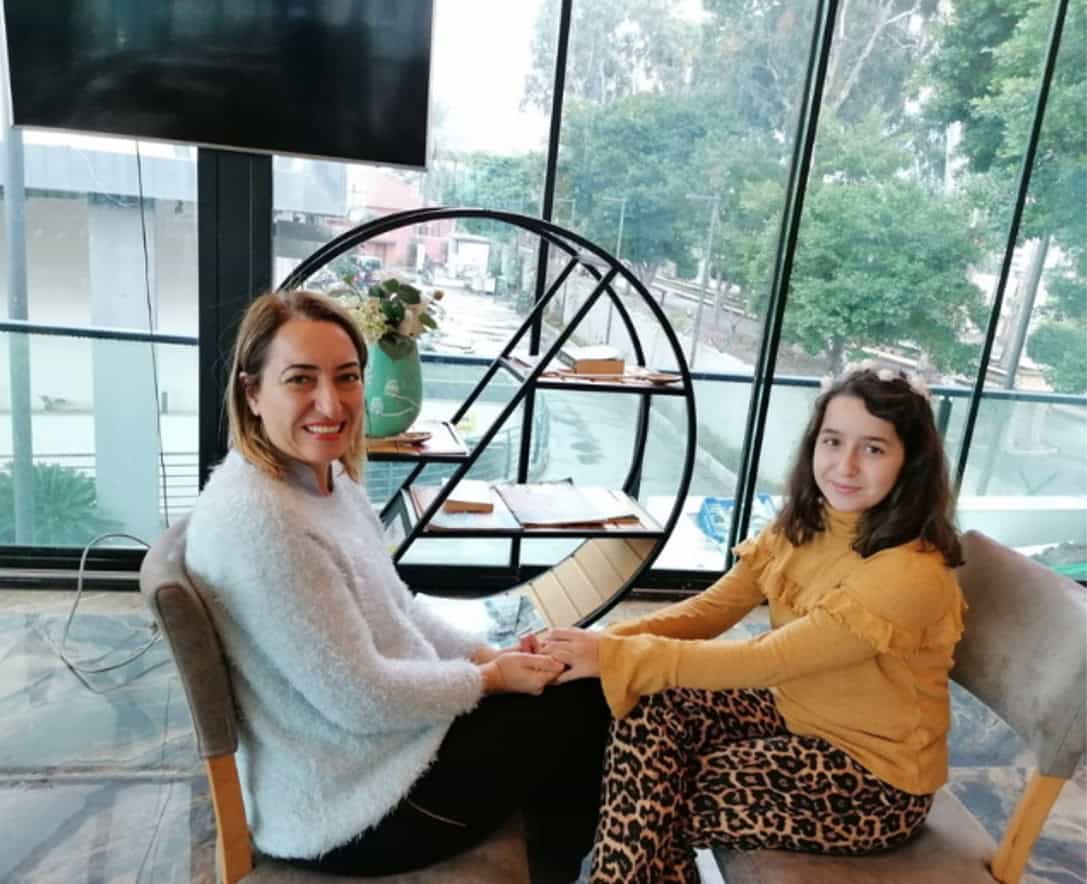On March 24, Be the Voice of Girls held a powerful virtual gathering as part of its Women’s History Month programming. The session was led by longtime friend of the program Andrew McCrea, whose warmth and storytelling once again brought history to life. What began as a celebration of influential women from U.S. history transformed into something deeper—a tribute to the women in our own lives who inspire us, guide us, and remind us why this program exists in the first place.
Andrew began the session by taking the girls through a rich and engaging timeline of American women who helped shape the nation’s story. He spoke of First Ladies like Dolley Madison, remembered not just for her role in the early republic but for her baking—her name still appears on snack cakes across the U.S. today. Eleanor Roosevelt, Michelle Obama, and Hillary Clinton all made appearances in the conversation as well, showcasing the evolving role of women in public life and politics. From there, the group learned about Susan B. Anthony and the long fight for women’s suffrage, a right only won in the United States in 1920—fifty years after Black men were granted the right to vote under the 15th Amendment. Andrew shared stories of Clara Barton, who founded the American Red Cross, and Helen Keller, who overcame both blindness and deafness to become a world-renowned advocate and writer. They learned of Rosa Parks, whose quiet courage helped launch the Civil Rights Movement, and Amelia Earhart, whose disappearance remains a mystery, but whose daring spirit continues to inspire young women around the world. He even shared a personal story—about his sister, Jill Nagel, the winningest girls’ basketball coach in Missouri state history, who now serves as a role model to many young women in sports and leadership.
But the heart of the session came when Andrew turned the spotlight to the girls. They were invited to share who inspired them. And in those moments, the chat box lit up with tributes that were raw, real, and deeply moving. Some spoke of their mothers who had rebuilt their lives after loss or hardship. One girl told the story of her mom, who had moved five times in a single year following the earthquake to make sure her daughter could continue school. Another shared about her sister, who, despite living with chronic illness, always pushed forward with strength and grace. Others mentioned neighbors, cousins, and friends—women who might not be well known, but whose quiet acts of love and perseverance made all the difference.
The conversation turned toward notable Turkish women as well. The girls recalled the bravery of Sabiha Gökçen, Turkey’s first female aviator and adopted daughter of Mustafa Kemal Atatürk, and the leadership of Tansu Çiller, the country’s first woman Prime Minister. Halide Edip Adıvar and Halime Çavuş were remembered for their critical roles during wartime, while Gizem Girişmen, a Paralympic gold medalist in archery, was celebrated for showing what’s possible with determination and resilience. And in the present day, Eda Erdem, captain of Turkey’s national volleyball team, stood out as a strong, principled role model for girls across the country.
Yet no tribute resonated more than the one shared by Mirey Baz, our local coordinator in Hatay, as she spoke of Fatma Dodurka—the visionary co-founder of Be the Voice of Girls whose legacy continues to guide every step of the program. With deep emotion, Mirey described how Fatma had changed her life. Before they met, Mirey had been teaching for twenty years and had begun to lose hope in the education system. She was growing tired, discouraged, and disheartened. But Fatma reignited her passion. She reminded her that teachers are strong, that women are strong, and that together we could do something transformative for the next generation of girls. As Mirey said so beautifully, “She set a fire in my life and in my heart.”
That fire continues to burn today.
Fatma’s work was never just about English or art. It was about belief—the belief that every girl deserves to find her voice, to share her story, and to shape her future. Her legacy lives in every lesson plan, every conversation, and every moment of courage shown by a BVG participant. Her memory is carried forward by the girls who speak up, who create, who dream. As Andrew said during the session, he himself would not be doing this work if not for Fatma and Carl. Her vision not only founded the program, it built a community—a global family of girls and mentors and supporters who now carry the torch.
As the session came to a close, Andrew challenged the girls to think about women who had made a difference in their own lives and to consider how they might tell those stories—through interviews, writing, podcasts, or artwork. Whether in English or Turkish, he reminded them that these stories matter. They deserve to be told, and they deserve to be heard.
Be the Voice of Girls was founded on that belief, and March’s session proved once again how powerful it can be when girls from different backgrounds come together to reflect, remember, and raise each other up. Even as the participants prepare for final exams and spring break, they continue to carry with them the spirit of this session—and of Fatma’s legacy. They are, in every sense, becoming the voices of girls.
And what strong, beautiful voices they are.


